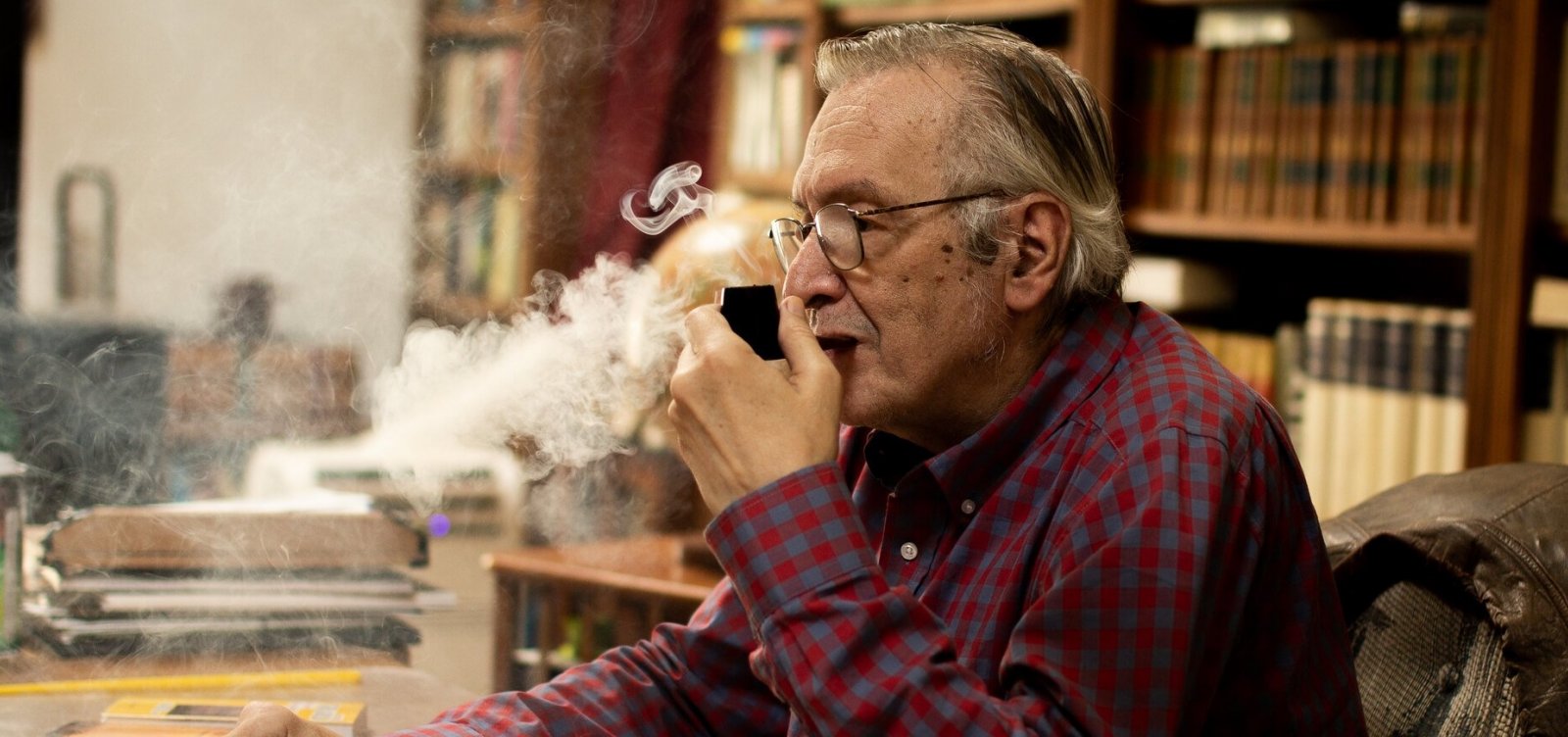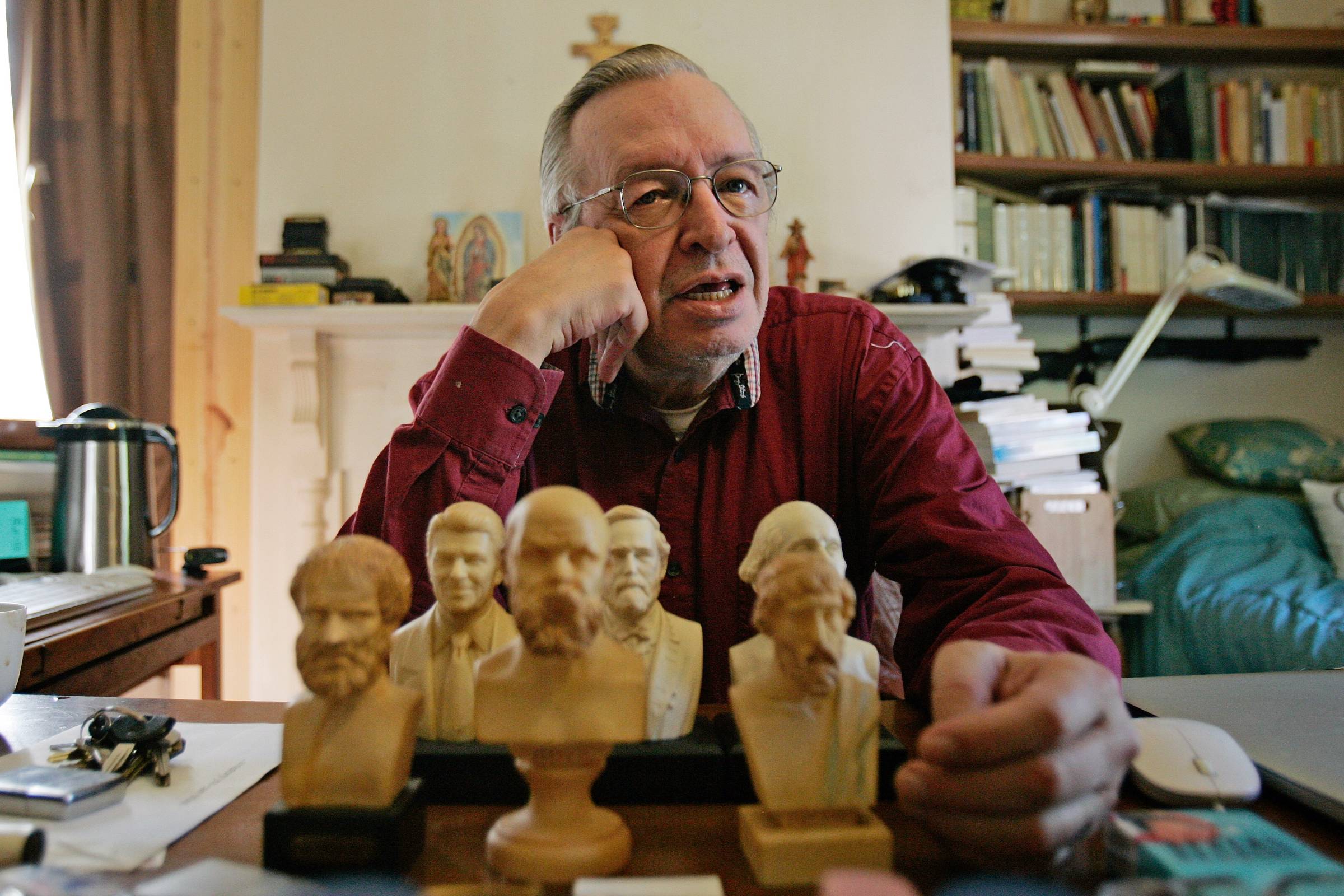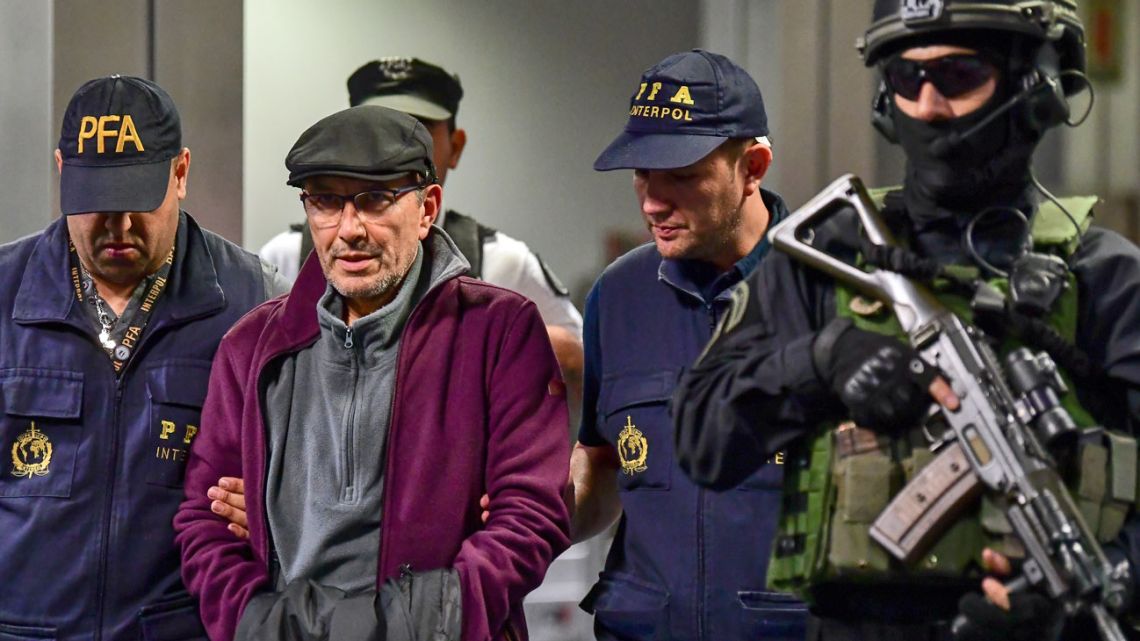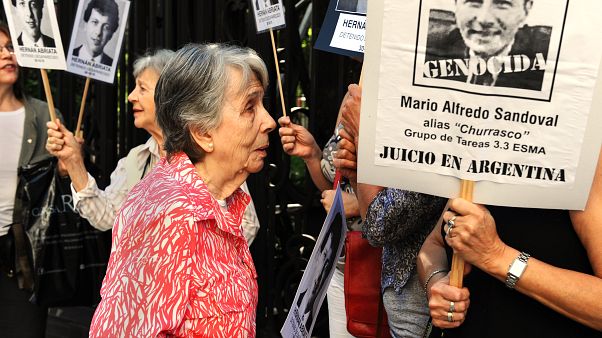Judi Lynn
Judi Lynn's JournalStream It Or Skip It: 'El Pepe, a Supreme Life' on Netflix, a Thoughtful Documentary Profile of Urug
Stream It Or Skip It: ‘El Pepe, a Supreme Life’ on Netflix, a Thoughtful Documentary Profile of Uruguay’s Former President
By John Serba @johnserba
Dec 31, 2019 at 4:00pm
Netflix documentary El Pepe, a Supreme Life enjoys significant, intimate access to former Uruguayan president Jose “El Pepe” Mujica. Anyone familiar with El Pepe’s personality won’t be at all surprised by this — he’s a remarkably accessible leader who foregoes formality for humility. Considering he’s an unrepentant socialist, no one can ever call him a hypocrite. This is just one aspect of director Emir Kusturica’s documentary, which attempts to capture the true character of its subject.
EL PEPE, A SUPREME LIFE: STREAM IT OR SKIP IT?
The Gist: Kusturica spent three years filming El Pepe — 2013-15, up to the final day of his presidency. The film’s opening scenes depict a man who’s modest and grounded to the point of eccentricity: He farms his own land, driving his own tractor. His home is visibly weathered and exceptionally ordinary (he famously chose not to live in the presidential palace during his tenure). His pet chihuahua only has three legs. The camera captures him taking a nap in his bed, and when he gets up, he’s wearing no pants — funny not because we’ve seen the president of Uruguay in his skivvies, but because he puts them on exactly how you expect him to. Right. One leg at a time.
What follows is a combination of similar moments — he teaches children to cultivate flowers, he oversees the construction of new housing for citizens in poverty — and biographical sketches narrated by El Pepe. He talks extensively about his time in prison, less gruesome detail (Google it and you’ll learn he suffered extreme mental breakdowns while existing in solitary confinement at the bottom of a horse trough), more philosophical reflections about how the experience made him who he is. In the 1960s, he was a member of the Tupamaros National Liberation Movement; one of his comrades claimed they invented urban guerilla warfare. The group violently resisted dictatorial politics, and El Pepe openly talks about the power he felt when he robbed banks to give money to the poor — acts he calls “expropriations.”
He talks about the deep love he has for his wife, Lucia Topolansky, also a former militant, and their love story is a charming subplot of the film. In one tense scene, a citizen confronts and insults him, and they argue; that El Pepe resorts to childish name-calling only deepens his reputation as an ordinary man. On his final day as president, he works the fields and rides in his trademark vintage blue Volkswagen beetle to the grand ceremony in Montevideo; on the way, he pumps his own gas, and worries that the country he loves is veering towards the ugliness of late capitalism.

More:
https://decider.com/2019/12/31/el-pepe-a-supreme-life-on-netflix-stream-it-or-skip-it/
Genocide: the new normal in Duque's Colombia
by Adriaan Alsema December 29, 2019
While Colombia’s government is boasting a 25% reduction in the killing of human rights defenders and community leaders, genocide has become the new normal.
The government of President Ivan Duque has taken the manipulation of statistics to a whole new level in its attempts to make the endless killing disappear and conceal its failure to respond.
In an interview with newspaper El Espectador, the presidential adviser on human rights, Francisco Barbosa, claimed on Thursday that 84 social leaders were assassinated between January 1 and December 17.
This was a 25% reduction compared to last year, he said. Where the top official got his numbers from is a mystery.
Government statistics contradict all other statistics
President Ivan Duque (L) and UN Mission chief Carlos Ruiz (Image: UN Photo)
The United Nations reported 123 assassinations of presumed social leaders in October already.
According to independent conflict monitor Indepaz, 234 social leaders were assassinated between January 1 and December 12.
More:
https://colombiareports.com/genocide-the-new-normal-in-duques-colombia/
Gov. Polis pardons Ingrid Encalada Latorre, who has spent years in sanctuary trying to avoid deporta
Polis also granted pardons to four other people and commuted the sentences of three people in his first use of his clemency powers since taking office a year ago
PUBLISHED ON DEC 23, 2019 12:17PM MST
Jesse Paul
@jesseapaul
The Colorado Sun — jesse@coloradosun.com

Ingrid Encalada Latorre. (CBS4 photo)
Gov. Jared Polis on Monday issued pardons for five people, including Ingrid Encalada Latorre, a Peruvian woman living in the U.S. illegally who has spent years living in sanctuary trying to avoid deportation.
Polis also commuted the sentences of three men, two of whom were convicted of murder and sent to prison for life without the possibility of parole. The third was a financial adviser convicted of fraud and sentenced to 100 years, and Polis was one of his victims.
In Encalada Latorre’s case, Polis issued a full and unconditional pardon on her 2010 conviction for felony impersonation. The move could result in a sea-change for her immigration status.
“Since your conviction, you completed your probation and paid restitution and back taxes,” Polis, a Democrat, wrote in his letter announcing his decision. “You are a dedicated and caring mother to your three children. You are working to educate others on legal ways to obtain employment and the consequences of using false documents.”
More:
https://coloradosun.com/2019/12/23/ingrid-latorre-jared-polis-pardon-immigration/
Families Fleeing From Guatemala: A Case Of Corporate And State Aggression - OpEd
December 25, 2019
By COHA
By Marc Pilisuk, Jennifer Rountree and Rebecca Ferencik*
In its attempt to stem a spike in the number of Latin American men, women, and children traveling to the U.S., an unprecedented number of them seeking asylum, the Trump administration has pushed Guatemala and other countries in the region to sign “safe third country” agreements. The U.S. is bound by law to permit those seeking asylum and this new agreement is an attempt by the administration to avoid this obligation by declaring Guatemala as a safe third country, requiring asylum seekers from Honduras and El Salvador to remain in Guatemala.
Signing an agreement declaring Guatemala a “safe” country does not make it so. Increasing drug and gang-related violence and poverty—an estimated 59% of Guatemalans live in poverty, most of whom are indigenous—are not the ingredients of a safe and secure environment. This environment is largely a result of the legacy of more than half a century of U.S. policy, intervention, and corporate interest and its deleterious effect on Guatemala’s people.
The Civil War
In the early 1950s, after decades of colonial rule, Guatemala elected Jacobo Arbenz, a nationalist and socialist who sought to transform oligarchic Guatemalan society through land reform and the development of government-owned enterprises. These government enterprises would be in competition with the American corporations, which at the time, dominated the railroad, electric, and fruit-trade industries. Of these American corporations, the United Fruit Company was the most influential. For decades, the company was the largest landowner, employer, and exporter in Guatemala. With nearly half of its land expropriated by Arbenz’ land reform act, United Fruit Company executives and board members (one of whom was then CIA Director Allen Dulles) appealed to the American government. In 1954, the U.S. government installed a puppet leader, overthrowing Arbenz in a coup, undoing his nationalist policies and setting up a strong-arm government that favored the United Fruit Company and other U.S. corporate interests.
Under U.S. guidance, Guatemala’s powerful military force and network of counterinsurgency surveillance—a program purported to stem the tide of communism in the region—continued for more than three decades. From 1960 through 1996, Guatemala was embroiled in a brutal civil war. The succession of military dictatorships were notorious for their scorched earth methods of destroying entire villages—most of them indigenous Mayan communities—in an effort to root out underground guerilla fighters. Their methods included beheading victims and burning them alive, smashing the heads of children on rocks, and raping women. In the fourteen months of Efraín Ríos Montt’s rule in the early 1980s, 10,000 documented killings or disappearances were reported. Conservative figures estimate that 200,000 people were killed or “disappeared” over the course of the war; 93% of the killings are attributed to the Guatemalan military. The United Nation’s Commission for Historical Clarification declared these deaths as genocide because the vast majority of the war’s victims were indigenous Maya. The 1999 report entitled, “Guatemala: Memory of Silence,” also identifies the U.S. involvement in the country as a key factor which contributed to human rights violations, including the training of Guatemalan officers in counterinsurgency techniques and support for the national intelligence system.
More:
https://www.eurasiareview.com/25122019-families-fleeing-from-guatemala-a-case-of-corporate-and-state-aggression-oped/
Brazil's artists lead a chorus of resistance to Jair Bolsonaro
As the president completes his first year in power, his opponents are finding their voice and fighting back
Last modified on Sat 28 Dec 2019 18.20 EST
Jair Bolsonaro’s presidency was still a week away when Edu Krieger penned his first critique – a ballad lamenting the rise of Brazil’s incoming leader and lampooning him over the corruption allegations that continue to haunt his family.
“It’s important for us to counterattack with our art,” said the 45-year-old singer-songwriter who has since become a specialist in musical parodies of the populist provocateur.
But as Bolsonaro completes his first year in power, Krieger is far from the only Brazilian artist finding their voice and continuing a rich tradition in one of the world’s most musical nations. From raperos to roqueiros, a growing chorus of musicians are denouncing the extremist politician and his assault on their trade.
“We can’t become anaesthetised and think, ‘Oh, he won [the election]. There’s nothing we can do,’” said Krieger, who has written songs for some of Brazil’s most celebrated female voices.
More:
https://www.theguardian.com/world/2019/dec/28/brazil-artists-lead-chorus-of-resistance-jair-bolsonaro
Meet the Intellectual Founder of Brazil's Far Right
Meet the Intellectual Founder of Brazil’s Far Right
Olavo de Carvalho’s anger has inspired a number of Brazilian far-right politicians, the country’s president
Story by Letícia Duarte
DECEMBER 28, 2019
Editor’s Note: This article is part of our “Democracy Undone” series about the erosion of liberal democracy around the world.
PETERSBURG, Virginia—Talking with Olavo de Carvalho can be an exercise in self-restraint. As I walked into his house for an interview recently, he was sitting behind his desk, his gray hair neatly combed back. More than 100 smoking pipes were lined up on a rack, and thousands of books were stacked on the shelves of his home office alongside at least 20 rifles. He greeted me with a deep frown and wide eyes before pointing at a printout of a recent article I had written and bellowing, “What the fuck is that?”
So began our second meeting.
Sitting across from him, I saw that he had already set up his computer to film our exchange, his laptop camera framing my face. (He records all his interviews with reporters, whom he calls “enemies of the people,” often releasing them on YouTube. These are then spread by his followers, with titles such as “Olavo humiliates journalist.”) His wife, daughter, and a handful of other relatives and friends sat on a couch behind me, eating Burger King and smoking cigarettes, like an audience waiting for a show.
I had been trying for months to get back in touch with him, and just two hours earlier, he had agreed to meet. He had read my story about him and wanted a chance to respond. Before long, he was extending his right arm and pointing his index finger at my face. “You’re very malicious, naughty, a liar—you are defaming me!” he shouted.
“You’re a slut,” he went on, wagging his finger. “You come to my house with this cynical smile … You’re worth nothing, woman!”
His language could be disregarded if they were random attacks, if he were an eccentric from the political hinterland. But Olavo de Carvalho is something else: Known simply as “Olavo” across his native Brazil, the former astrologist, former communist, and former journalist has become the most virulent voice against the left in Brazil. His commentary immediately reverberates across the country, propagated by his more than 1 million followers on YouTube and Facebook. Worshipped by the right and ridiculed as an extremist by the left, Olavo and his beliefs are discussed almost daily in Brazil, everywhere from threads on Twitter to long magazine articles.
He is powerful for another reason. The 72-year-old is the architect of Brazilian President Jair Bolsonaro’s far-right vision. A self-educated philosopher who never completed high school, Olavo has formed a new generation of conservative leaders in Brazil through an online philosophy course he has taught for 10 years. He estimates that about 5,000 students are currently enrolled in his program, and 20,000 people have watched his classes, including members of Bolsonaro’s cabinet.
More:
https://www.theatlantic.com/international/archive/2019/12/brazil-olavo-de-carvalho-jair-bolsonaro/604117/






Guess who!
Bolivia is latest successful U.S.-backed coup in Latin America
By Mint Press News Last updated Nov 13, 2019
By Alan Macleod / MintPress News
Bolivian President Evo Morales “resigned” at gunpoint Sunday, after army generals publicly demanded his resignation, despite convincingly winning re-election just three weeks ago.
The preceding 21 days were filled with fractious demonstrations and counter-protests from Morales’ supporters and opponents. On October 20, Morales had secured enough votes to win the election outright in the first round without the need for a run-off against his closest challenger, Carlos Mesa. However, Mesa cried fraud, citing supposed irregularities in the vote-counting procedure, claiming Morales did not receive the requisite vote share to ensure his victory. The Organization of American States (OAS) and the U.S. government repeated this claim, although neither group provided evidence of fraud. Morales invited the OAS to audit the election as he was confident of its veracity. Indeed, a report by the Washington-based Center for Economic Policy Research found that the vote totals were “consistent” with those announced, finding no irregularities whatsoever. Despite this, the local U.S.-backed opposition went on the attack.
Right wing rampage
On Saturday, veteran political scientists Noam Chomsky and Vijay Prashadwarned that “a coup is brewing against the elected government” of Bolivia, expressing their concern at the “fascistic” violence percolating throughout the country. In Santa Cruz, a stronghold of the wealthy white elite who oppose Morales, the office of the electoral authority was burned down. Meanwhile, in Vinto, opposition groups kidnapped local mayor Patricia Arce, cut her hair off and painted her body red, publicly dragging her through the streets and abusing her, forcing her to commit to leaving office.
Victor Borda, President of Bolivia’s Chamber of Deputies, was also forced to resign after coup forces attacked his house and kidnapped his brother.
As soon as Morales stepped down, the police, who had refused to serve his government, ordered his arrest and vandals ransacked his house. Meanwhile, the conservative opposition joyously burned the flag of Bolivia’s indigenous people (a majority of the country’s population), in the clear hopes that the coup would mark a return to rule by the white elite who had been in power since the time of the Conquistadors.
More:
https://progresoweekly.us/bolivia-is-latest-successful-u-s-backed-coup-in-latin-america/
France again condemns Title III of US anti-Cuban Helms-burton Law
Paris, Dec 22 (Prensa Latina) The French government condemned again the activation of Title III of the Helms-Burton Act, a US initiative aimed at intensifying the economic, commercial and financial blockade against Cuba, the French Senate said today.
In its digital portal, the upper house of parliament discloses the French position, expressed by the Foreign Ministry in response to the senator by Martinique, Catherine Conconne, who on November 28 asked Quai d'Orsay for the gala position in the face of strengthening hostility from the White House to the island.
According to the written response, France considers Washington's decision to activate the section that seeks to deprive Cuba of foreign investments, based on its extraterritorial nature, in violation of International Law, to be unacceptable.
The United States threatens our economic sovereignty, trying to dissuade companies, especially European companies, willing to enroll in investments on the island, he said.
More:
https://www.plenglish.com/index.php?o=rn&id=50229&SEO=france-again-condemns-title-iii-of-us-anti-cuban-helms-burton-law
~ ~ ~

The true origin of the Helms-Burton Act
By Jesús Arboleya Last updated May 17, 2019
HAVANA – In 1998, just two years after the Helms-Burton Act was passed, the Center for Public Integrity (CPI), a well-known nonprofit organization dedicated to journalistic research with the stated purpose of “revealing abuses of power, and corruption of public and private institutions” of the United States, published an extensive report on the origin of this law, which until today has not been refuted (*).
According to the CPI report, it all started when Republican Jesse Helms assumed the presidency of the Senate Foreign Relations Committee and proposed a ten-point agenda aimed at changing the direction of the foreign policy of then-President Bill Clinton.
Perhaps because Cuba seemed like one of the few remnants of socialism in the world, the island appeared at the top of this agenda. Nothing else could be expected from a fanatic anti-communist who had voted against the end of racial segregation, the right of homosexuals, the investigations on AIDS, and all the proposals of social benefits that he had before him during his 30 years in Congress.
To carry out this task, Helms appointed his assistant, Dan Fisk, who put together a team that included Cuban-American Republican members of congress Lincoln Díaz Balart and Ileana Ros-Lehtinen, as well as senators Bob Menéndez and Robert Torricelli, all who had already worked on previous legislation against Cuba.
As a counterpart to Helms, Republican congressman Dan Burton was chosen in the lower chamber. Burton was head of the Western Hemisphere subcommittee of the House of Representatives despite the fact that one of his most famous proposals was to deploy U.S. ships to the Bolivian coasts (Bolivia has no coastline) in order to stop drug trafficking.
More:
https://progresoweekly.us/the-true-origin-of-the-helms-burton-act/
How did an accused torturer end up teaching at the Sorbonne?
Mario Sandoval charged with dictatorship-era crimes in Argentina – so how could he have worked undetected at a top French university?
Uki Goñi in Buenos Aires
Sun 22 Dec 2019 04.30 EST
The Argentinian security specialist was in his mid-40s, spoke good French and had recently obtained French citizenship. His credentials were impeccable – he’d spent the previous five years teaching international relations at another Paris institute, the Université Marne-la-Vallée – and he soon became a valued asset at the Sorbonne.
During his six years at the illustrious university, from 1999 to 2005, Sandoval regularly volunteered to screen student applicants and organized numerous seminars, bringing in outside experts to speak to his students.
“He had an uncanny capacity to blend in. He would roll up his sleeves and get straight to work,” said Carlos Quenan, a fellow Argentinian academic at the Sorbonne. “I never received any particular complaint from staff or students about him.”
What Quenan and his colleagues at the Sorbonne did not know was that before arriving in France in 1985, Sandoval had allegedly been a notorious police torturer during Argentina’s military dictatorship.
More:
https://www.theguardian.com/world/2019/dec/22/argentina-sorbonne-accused-torturer-mario-sandoval

Mario Sandoval


Media, Human Rights Groups Silent Over Politically-Motivated Murder of Journalist in Bolivia

Media, Human Rights Groups Silent Over Politically-Motivated Murder of Journalist in Bolivia
December 21, 2019 Alan MacLeod
Sebastian Moro’s last known words before he was found were denouncing the kidnappings of government officials and mob attacks on journalists and media outlets.
By Alan Macleod – December 20, 2019
Argentinian journalist Sebastian Moro was found unconscious, left for dead, covered in bruises, scratches and other signs of violence on November 10. Moro was wearing a vest identifying him as press covering the dramatic U.S.-backed coup against democratically elected President Evo Morales in Bolivia.
The 40-year-old worked for the influential Argentinian newspaper Pagina/12. Hours earlier he had denounced what he saw as a far-right takeover of power. His last known words, published in his newspaper hours before he was found, were denouncing the kidnappings of government officials, and mob attacks on journalists and media outlets. He had been one of the only voices exposing the local opposition’s campaign of terror to the world. Moro spent six days in a La Paz hospital before finally succumbing to his injuries.

A photo of Sebastian Moro at a cafe in Bolivia not long before his death. Photo | Facebook
Despite the world’s attention being focused on the Andean country, media has steadfastly ignored the likely beating to death of a foreign journalist for political reasons. No mention of Moro has been made in the New York Times, CNN, MSNBC, Fox News or any mainstream Western outlet, despite his story being well known in his native Argentina. Nor has his case been mentioned by the major human rights networks such as Amnesty International or Human Rights Watch. Even the Committee to Protect Journalists has not acknowledged his killing. Its list of deceased journalists in 2019 shows none across South America.
In fact, both media and the human rights industry have been leading a campaign to legitimize the new coup administration of Jeanine Añez and whitewash her crackdown on independent media. Taking their line from the Trump administration, corporate media refused to call the events in Bolivia a coup, preferring instead to frame it as Morales “resigning.” The New York Times welcomed the end of the “increasingly autocratic” Morales and expressed its relief that the country was in the hands of more “responsible” leaders. Meanwhile, the Wall Street Journal’s headline read “a democratic breakout in Bolivia.”
More:
https://orinocotribune.com/media-human-rights-groups-silent-over-politically-motivated-murder-of-journalist-in-bolivia/?fbclid=IwAR2ZrS_ZVhpKdXfj9sjMwi1p6ycucIAs1R5aSn8yUvzwYYmV1zHpZ7F6-PM
It's a very old, familiar, evil pattern. It has been done to death so many times. They won't "fix it" because as far as they're concerned, it "ain't broke."
Profile Information
Member since: 2002Number of posts: 160,515